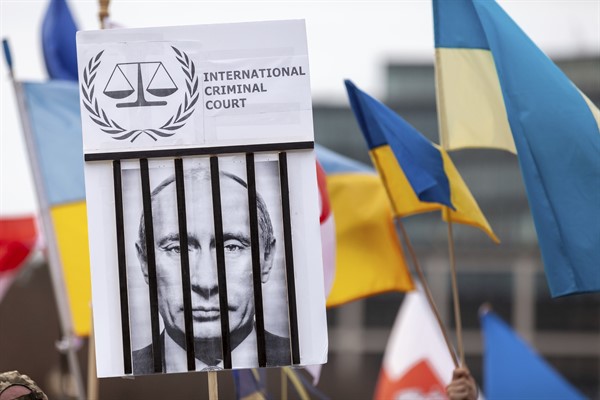Terrible stories are emerging from Ukraine about the mass rape of civilian women by Russian soldiers. Among the most notorious reports is one involving a group of teenage girls who were held captive in a basement in Bucha. Nine of them are now pregnant after multiple gang rapes. According to Ukraine’s ombudsman for human rights, Lyudmyla Denisova, “Russian soldiers told [the victims] they would rape them to the point where they wouldn’t want sexual contact with any man, to prevent them from having Ukrainian children.”
Currently, these are reports from officials of a nation at war, and must therefore be verified by independent observers before being treated as fact. But Human Rights Watch has also documented rape among the many crimes taking place in Bucha and elsewhere in Ukraine. If this new mass rape and forced pregnancy allegation is confirmed by independent human rights fact-checkers, it could constitute grounds to indict the soliders for crimes against humanity and even genocide. Rape is prohibited under the laws of war, and when carried out en masse against civilians, it is a crime against humanity. And taking measures to prevent births within a national group is one of several acts that can constitute genocide.
Many have rightly asked whether the victims of wartime rape can ever expect to receive justice. It is a fair question, because the international community has a hard time prosecuting war crimes in general. The Geneva Conventions place the responsibility for prosecutions first and foremost on the states whose soldiers have allegedly committed the crimes. The International Criminal Court, or ICC, can only step in where national governments won’t, and only under very specific conditions. Ad hoc war crimes tribunals, such as the International Criminal Tribunal for the Former Yugoslavia and the International Criminal Tribunal for Rwanda, are rare. They also require the support of the United Nations Security Council, which is divided in the case of the war in Ukraine.

